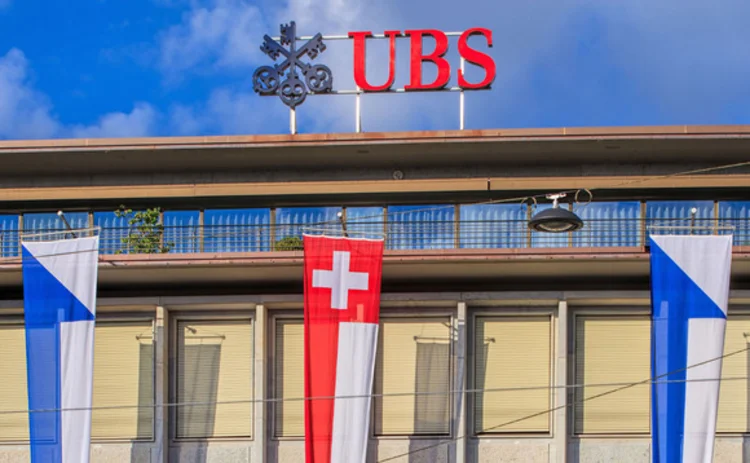
UBS: banks that avoid passing cost rises on to clients will win
UBS wins Best Bank for Currency Options and Best Bank for the Swiss Franc at the 2016 FX Week Best Banks Awards

Rising costs and complexity have been a feature of life for sell-side market participants ever since the post-crisis regulatory reforms began, but as the implementation phase gets going in earnest, these expenses are starting to filter through to clients.
The question is: how much of the increases will be passed on to the buy side, and what impact will a full cost transfer have on volumes and liquidity in the extremely low-margin business of foreign exchange?
"Our aim is to help clients experience the same level of service as they are used to from UBS, even though the complexity of daily business and cost of doing business is rising. Regulation is adding extra costs to business, but we are working hard to make sure the burden of these costs land on us and not our clients," says John Newman, global head of FX options at UBS.
The race will be won by the banks that are most successful at avoiding passing on costs and are able to keep the client experience the same
John Newman, UBS
"I would like clients to say in two years' time that there wasn't a change in [the] complexity of doing business with the bank. The race will be won by the banks that are most successful at avoiding passing on costs and are able to keep the client experience the same. Firms that do that will emerge as winners," he adds.
To achieve this, UBS is investing in improving its risk aggregation systems and infrastructure to commoditise as many products as possible, while making them transparent and efficient. This is especially important for the more complex derivatives, where clients have historically had less transparency regarding the value of a product during the contract's life cycle.
More automation allows traders to concentrate more of their time on risk management, which has become critically important as market conditions and the liquidity landscape developed. Meanwhile, the 2015 Swiss National Bank event and the devaluation of the Chinese renminbi have changed perspectives sharply.
Model lessons
"The lessons learnt in 2015 have shown us that VAR (vector autoregressive) models are not as accurate at predicting maximum losses as some people had thought, and this forced market-makers to re-evaluate their approach to risk and the way they look at gap risk," Newman says.
"Absolute volatility was higher in 2015, but in 2016 the vol-of-vol is much higher and the gapping moves we have seen around key events demonstrates how much liquidity has changed. The aftermath of Brexit was challenging and we have seen a complete deja vu with the US elections," he adds.
Since January 2015, no one knows more about gapping moves than Swiss franc traders. The epic 20% move in EUR/CHF was the equivalent of watching the impossible playing out very fast. And while the SNB removed its official currency floor of 1.20 in EUR/CHF, traders in the currency are more than aware of the central bank's tolerance levels for the franc's strength.
The unofficial line in the sand is considered to be around the 1.08 level. Sight deposit numbers from the SNB show the central bank has been active in currency markets and the franc throughout 2016, preventing it from appreciating. These upticks in sight deposit numbers usually come after EUR/CHF approaches 1.08.
London and Zurich will now work as a joint centre, demonstrating our commitment to serving our clients in the best possible way
Sandro De Toffol, UBS
"The franc remains to be seen as a safe-haven currency. The whole point of not having the official floor is that it gives the SNB more flexibility, and it's possible that over time the central bank's tolerance will move," says Sandro De Toffol, a Zurich-based FX trader at the bank.
Competition from non-bank market-makers has also increased; a positive development for the overall market, according to De Toffol. And with volatility and occasional stress events set to feature next year, UBS has established a new trading desk in London to be closer to clients.
"London and Zurich will now work as a joint centre, demonstrating our commitment to serving our clients in the best possible way," De Toffol says.
"We see increased competition in market-making as a positive for the market and we are comfortable that we have a very strong product offering. We have proven to be reliable, with a strong commitment to providing liquidity and prices at all times," he adds.
Click for editor's introduction, list of interviews and awards tables
Only users who have a paid subscription or are part of a corporate subscription are able to print or copy content.
To access these options, along with all other subscription benefits, please contact customer services - www.fx-markets.com/static/contact-us, or view our subscription options here: https://subscriptions.fx-markets.com/subscribe
You are currently unable to print this content. Please contact customer services - www.fx-markets.com/static/contact-us to find out more.
You are currently unable to copy this content. Please contact info@fx-markets.com to find out more.
Copyright Infopro Digital Limited. All rights reserved.
You may share this content using our article tools. Printing this content is for the sole use of the Authorised User (named subscriber), as outlined in our terms and conditions - https://www.infopro-insight.com/terms-conditions/insight-subscriptions/
If you would like to purchase additional rights please email info@fx-markets.com
Copyright Infopro Digital Limited. All rights reserved.
You may share this content using our article tools. Copying this content is for the sole use of the Authorised User (named subscriber), as outlined in our terms and conditions - https://www.infopro-insight.com/terms-conditions/insight-subscriptions/
If you would like to purchase additional rights please email info@fx-markets.com
More on Awards
Asia FX Awards 2024: The winners
The FX Markets Asia FX Awards present 43 categories, determined by an esteemed judging panel comprising industry experts and FX professionals across Apac. They have paid attention to firms that brought unique and innovative ways to fulfil industry needs…
Best blockchain technology service provider: Talos
By building a robust ecosystem with a blueprint based on traditional asset classes, Talos has attracted a network of the most important institutional players to its digital asset trading platform
HSBC wins six Apac FX house of the year awards
With one of the strongest footprints in the Asia-Pacific region (Apac), HSBC provides international clients with an extensive local FX franchise while facilitating local clients’ access to international markets
Best FX prime broker and Best compression/optimisation service for FX: HSBC
With one of the largest FX networks worldwide – and strong coverage in Asia and other emerging markets – HSBC’s FX prime brokerage remains a strategic partner to key financial institutions
Best aggregator and Best FX analytics provider: oneZero
oneZero continues its rapid growth as FX brokers, banks and non-banks in Asia and beyond benefit from the advanced features its multi-asset trading and analytics technology provide
Firms seek optimisation gains as UMR and SA-CCR bite
A wider range of market participants is taking advantage of service providers such as OSTTRA’s optimisation cycles to drive margin and counterparty credit risk efficiencies across asset classes including FX, rates, equities, commodities and credit
Best FX overlay manager: State Street
In the most challenging market environment in many years, demand for State Street’s currency management offering spiked in 2022 as market participants sought assistance in minimising their FX risk and optimising their hedging activities
Best settlement initiative: CLS
Created 20 years ago to mitigate FX settlement risk, CLS continues to lead the settlement sphere with new solutions designed to meet the challenges of an ever-evolving FX market







